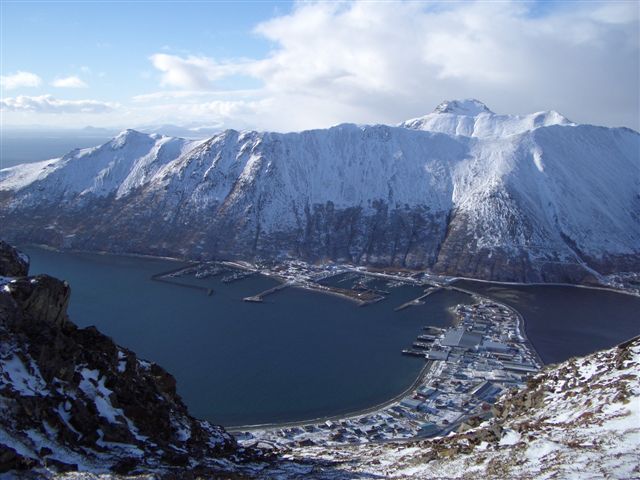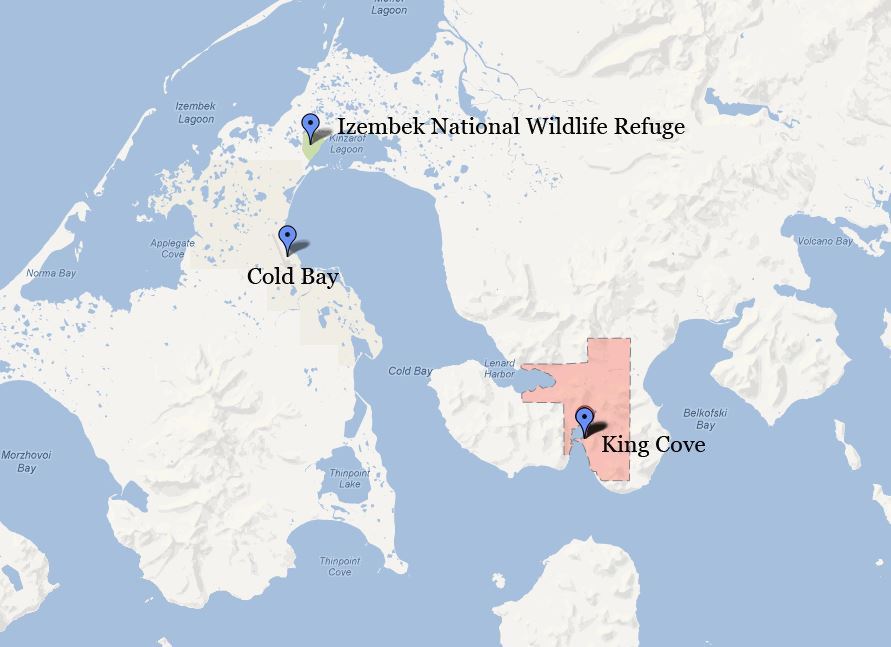
Conservation groups say the Interior Department has gone behind the public’s back and conducted a land survey in the Izembek National Wildlife Refuge, in the area of the proposed King Cove road.
A memo from the Fish and Wildlife Service said the work would involve 80 helicopter landings over two days, to drive 122 metal survey markers into the ground. A spokeswoman for the Fish and Wildlife Service confirmed the survey work in the refuge was completed this week.
“We have concerns that they violated the Wilderness Act, and we will be looking into this further,” Nicole Whittington-Evans of The Wilderness Society said. The group is one of several that filed a lawsuit in January to block the proposed road.

The fight over the proposed road has existed for 20 years or more. The community of King Cove wants the road to get to Cold Bay, which they say would save lives in medical emergencies. Bad weather often prevents planes from landing in King Cove, and Cold Bay has a 10,000-foot runway.
But the road would have to go through about 10 miles of the refuge, which includes land categorized as “wilderness.” That’s the federal land designation of maximum protection.
Conservation groups are fiercely opposed to the road. They say it would damage an area of worldwide significance to waterfowl, bears and other wildlife.
In January, Interior Secretary Ryan Zinke signed a land trade agreement to swap the proposed land corridor for private land owned by the King Cove Corporation. The agreement calls for a survey, to determine the value of the land.
In a July 12 memo, the regional chief of the refuge system for the U.S. Fish and Wildlife Service, Mitch Ellis, wrote that the land trade agreement requires a survey, so they didn’t go through the regular management review process as they would for proposed work.
If a full environmental review had been deemed necessary, the public would have had a chance to weigh in.
The memo says government officials decided to do the work with helicopters so that the duration of disturbance would be limited to two days. If surveyors went in on foot, the memo says, they would have had to haze bears for a longer period.
Brook Brisson is an attorney at Trustees for Alaska, a law firm that filed a legal challenge to the land trade on behalf of several environmental groups.
“The Wilderness Act is a very protective statute, and it prohibits things like helicopters and installations in wilderness,” Brisson said. “And Izembek is wilderness. So we are looking very closely at the legality of those survey activities and we are evaluating next steps with our clients.”
The groups’ lawsuit claims the land exchange agreement is not legal, though they have not obtained a court order that would have prevented the survey work.
Neither the Service nor the Interior Department responded to questions about the legality of the work by our deadline.
Liz Ruskin is the Washington, D.C., correspondent at Alaska Public Media. Reach her atlruskin@alaskapublic.org. Read more about Lizhere.





